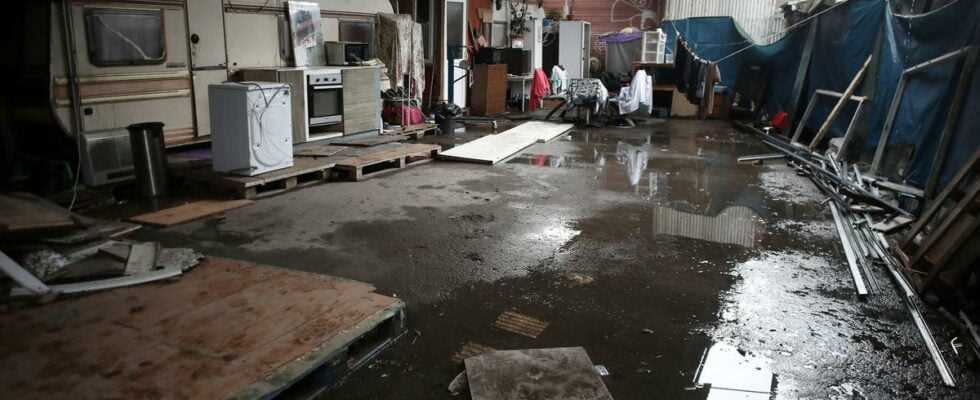At the start of the year, approximately 1,400 people live in 108 squats or shantytowns in the Métropole – as revealed by “Sud Ouest” in its survey on the Bidonvilles: what can the president of Bordeaux Métropole do in the face of this situation?
Alain Anziani. We must reason according to the types of population that live in these precarious habitats. There are travellers…
At the start of the year, approximately 1,400 people live in 108 squats or shantytowns in the Métropole – as revealed by “Sud Ouest” in its survey on the Bidonvilles: what can the president of Bordeaux Métropole do in the face of this situation?
Alain Anziani. We must reason according to the types of population that live in these precarious habitats. There are travellers, and after having had great difficulty setting up the high traffic areas, it will be done in a few months. There are the rejected asylum seekers – who in fact have only one right, that of returning home, and live in extreme conditions. And there is the case of Roma, Bulgarians or Romanians, who come to work in the vineyards and squat in the metropolis. Viticulture, construction, there is a whole economy behind squats – the situation is similar in Nantes, with market gardening. All this means that the Bordeaux conurbation is in the forefront of camps, squats and slums. Of course, this is something that shocks…
What to do, concretely?
Bordeaux Métropole has set up a platform with the prefecture, Bordeaux, Bègles, Mérignac, the Department (for social support): this initiative allows everyone to take their responsibilities, often far from our prerogatives. We play a big logistical role, we identify people and situations. Before, we didn’t talk enough. On these sites, water and electricity do not come from nowhere, it is the Metropolis! During the previous mandate, I led a delegation to Strasbourg, which developed interesting solutions. Places of transition, which we are developing here. These are the temporary integration spaces, the ETIs. Four will be developed in Bègles, Mérignac, Floirac and Bordeaux. That of Bègles is inaugurated Thursday [quai Wilson, derrière le hangar de feu Eurolines, squatté par des Roms depuis six ans, NDLR].
What do we find there?
These are places made up of mobile homes that we bought, to live in decent conditions. Each family signs a six-month contract renewable twice. Around thirty people can live in Bègles, 8 to 10 households also in Mérignac and around ten families in Floirac. In Bordeaux, there will also be ten large mobile homes. They find strength there. Social support. And those who work can access housing. The goal is to get out of squats. It’s a question of hygiene. This is why I am in favor of expulsions: a squat that lasts too long is unbearable for those who are inside and those who are outside. Squats are human dramas, but don’t forget the residents.
Can these Temporary Insertion Slots meet the needs?
Significant cultural barriers remain. The fact of wanting to live together, to go back and forth to one’s country… Squats are very different populations with different motivations. And different issues. On the issue of vineyard work and places to live, we are speaking with the Bordeaux Wine Federation. But the law must also be amended, given this new reality of the lack of manpower.
That is to say ?
We need to relax our immigration policy. I am not against the idea of setting quotas. And there is the question of the rejected asylum seekers. In Germany, they have a status. In France today, they are the great invisibles. They receive a departure notice, even if they have been there for a long time and their children are well integrated, and live with this sword of Damocles, like ghosts, in absolute precariousness.
Some make the link between the number of camps and the lack of social housing in the Metropolis. The prefect called elected officials to order recently on this subject…
This has nothing to do with. We lack housing because we lack available land and it is expensive. And if the buildings are piled up too much, we can no longer follow in terms of facilities, shops, traffic… Making such a link is very artificial.
